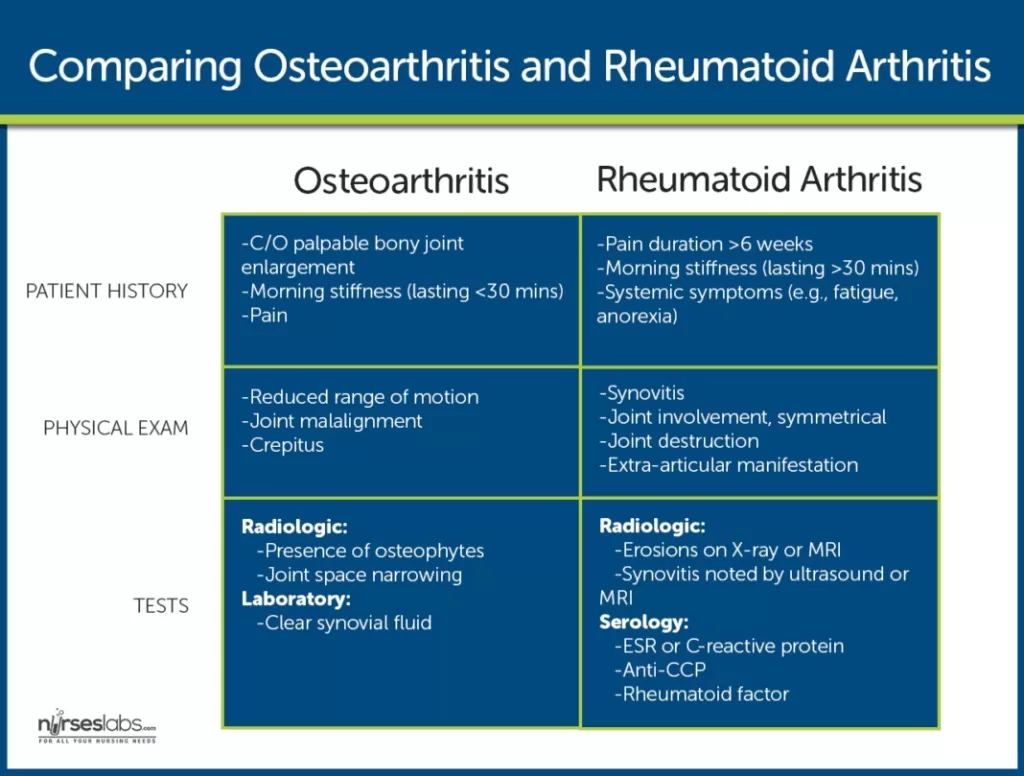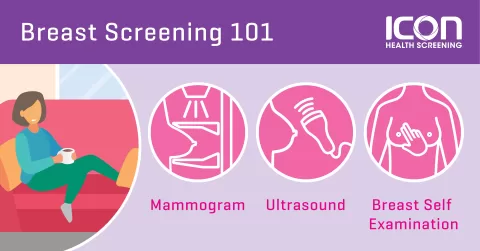As we approach 2025, the landscape of arthritis treatment is undergoing transformative changes, driven by promising advancements in medical research and patient care strategies. Innovations in rheumatoid arthritis advances are not only enhancing the understanding of this chronic condition but also leading to more effective RA treatment strategies. Emphasizing anti-inflammatory nutrition and the mental health aspects of arthritis management, healthcare providers are now adopting a more holistic approach to care. The recent biomarker discovery in arthritis offers a glimpse into personalized treatment plans, which could revolutionize how clinicians monitor and treat this condition. With these exciting developments, arthritis treatment 2025 aims to significantly improve the quality of life for millions affected by this debilitating disease.
As we look ahead to the future of managing joint disorders, various terms such as inflammatory arthritis therapy and rheumatic disease interventions encapsulate the evolving strategies in care. The focus on nutritional approaches, particularly anti-inflammatory diets, is becoming increasingly recognized as a vital component in the therapeutic arsenal against these illnesses. Furthermore, understanding the psychological implications of living with these conditions, particularly how mental health intertwines with physical symptoms, is gaining traction in treatment models. With the ongoing discovery of new biomarkers, healthcare professionals are poised to implement tailored treatment options that cater to individual patient profiles. These combined efforts in arthritis treatment are setting the stage for a more integrated and effective management approach in the coming years.
Emerging Arthritis Treatment Strategies for 2025
As we move towards 2025, the landscape of arthritis treatment is evolving, with emerging strategies that aim to provide comprehensive care. A significant focus is on personalized medicine, where treatment plans are tailored to the individual’s specific disease profile. Innovations in biomarker discovery are playing a crucial role in this transition, allowing healthcare professionals to track disease progression and treatment efficacy more effectively. With a better understanding of rheumatoid arthritis (RA) pathogenesis, clinicians can select therapies that directly target underlying mechanisms, rather than solely addressing symptoms. This shift is expected to enhance patient outcomes and improve the overall quality of life.
Moreover, the integration of technology into arthritis management is gaining momentum. Digital health tools, such as mobile applications and telehealth platforms, offer patients greater access to healthcare resources and support. These tools facilitate real-time monitoring of symptoms and medication adherence, empowering patients to take an active role in their treatment journey. By utilizing these advancements, healthcare providers can implement proactive strategies that encompass a holistic approach to arthritis care, inclusive of both physical and mental health components.
The Role of Anti-Inflammatory Nutrition in Arthritis Management
Anti-inflammatory nutrition has emerged as a key component in managing rheumatoid arthritis effectively. As research uncovers the links between diet and inflammation, patients are increasingly encouraged to adopt dietary patterns that mitigate inflammatory responses. Foods rich in omega-3 fatty acids, such as salmon and flaxseeds, along with an abundance of fruits and vegetables, can help reduce joint pain and stiffness. Nutritional experts emphasize the importance of incorporating anti-inflammatory spices like turmeric and ginger into daily meals, which have demonstrated significant potential in alleviating symptoms associated with RA.
Furthermore, the concept of anti-inflammatory nutrition extends beyond individual food choices; it encompasses comprehensive dietary frameworks that prioritize overall health. For instance, the Mediterranean diet has gained recognition for its anti-inflammatory properties and its ability to support heart health, which is vital for individuals with arthritis. By educating patients on the benefits of these dietary approaches, healthcare providers can promote a more integrative treatment model that complements pharmacological interventions and enhances the efficacy of arthritis management.
Mental Health Considerations in Arthritis Care
The intersection of mental health and arthritis management is increasingly recognized as a crucial aspect of holistic care. Individuals living with rheumatoid arthritis often face psychological challenges such as anxiety and depression due to the chronic pain and lifestyle limitations imposed by their condition. Studies indicate that addressing mental health is vital for improving treatment outcomes and overall well-being. Thus, healthcare providers are encouraged to include mental health assessments as part of routine arthritis care, allowing for timely interventions that can significantly enhance patients’ quality of life.
Incorporating mental health support into arthritis treatment regimens can take various forms, including counseling, support groups, and cognitive-behavioral therapy. These approaches help patients develop coping strategies to manage the emotional burdens associated with chronic illness. Additionally, fostering open communication between patients and healthcare providers ensures that mental health considerations are integrated into the treatment plan, ultimately promoting a more comprehensive approach to arthritis care.
Biomarker Discovery: A New Frontier in Arthritis Treatment
The discovery of novel biomarkers for rheumatoid arthritis is revolutionizing the way healthcare professionals approach treatment and monitoring of the disease. Biomarkers serve as indicators of disease activity and progression, enabling clinicians to tailor interventions based on individual patient needs. This advancement not only enhances the ability to track the effectiveness of treatment strategies but also aids in early detection of disease flares, allowing for timely adjustments to therapy. As research continues to evolve, the potential for biomarkers to guide personalized treatment plans becomes increasingly promising.
Moreover, the integration of biomarker discovery into clinical practice has the potential to transform patient outcomes dramatically. With the ability to identify specific disease characteristics, healthcare providers can implement targeted therapies that address the unique aspects of each patient’s condition. This personalized approach fosters a better understanding of individual responses to treatment, ultimately leading to more effective management of rheumatoid arthritis and improved quality of life for patients.
Future Directions in Arthritis Treatment: What to Expect by 2025
As we look ahead to 2025, the future of arthritis treatment is poised to be shaped by innovative research and advancements in therapeutic strategies. One of the most exciting prospects is the potential for disease-modifying therapies that not only relieve symptoms but also alter the course of the disease. Researchers are exploring various avenues, including biologics and small molecules, to develop treatments that can effectively target the underlying mechanisms of rheumatoid arthritis. This shift towards disease modification represents a significant leap forward in the management of arthritis.
Additionally, the emphasis on patient-centered care is expected to gain further traction in the coming years. Collaborative decision-making between patients and healthcare providers will be crucial in ensuring that treatment plans align with individual values and preferences. This approach fosters a sense of empowerment among patients, enhancing their engagement in the treatment process. By prioritizing patient involvement and harnessing emerging scientific discoveries, the future of arthritis care looks promising, with the potential to improve outcomes for millions living with this chronic condition.
Frequently Asked Questions
What are the latest advances in rheumatoid arthritis treatment for 2025?
In 2025, significant advances in rheumatoid arthritis treatment focus on understanding the molecular mechanisms of the disease. Researchers are developing therapies that target the root causes of RA rather than just alleviating symptoms, potentially revolutionizing treatment protocols and improving patient outcomes.
How does anti-inflammatory nutrition impact rheumatoid arthritis treatment in 2025?
Anti-inflammatory nutrition is gaining traction in 2025 as a complementary strategy to traditional rheumatoid arthritis treatments. Incorporating foods rich in anti-inflammatory properties, such as ginger and turmeric, can help alleviate symptoms and enhance the efficacy of pharmacological interventions.
What is the importance of mental health in arthritis management for 2025?
Mental health plays a crucial role in arthritis management in 2025. Research indicates that individuals with rheumatoid arthritis are at a higher risk for mood disorders. Integrating mental health support into arthritis treatment regimens is essential for improving overall well-being and treatment outcomes.
How can new biomarker discoveries improve rheumatoid arthritis treatment strategies in 2025?
The discovery of new biomarkers in 2025 is poised to enhance rheumatoid arthritis treatment strategies by enabling healthcare professionals to track disease progression and tailor treatment plans more effectively. Personalized therapies based on these biomarkers can lead to improved outcomes for patients.
What are effective RA treatment strategies being adopted in 2025?
Effective RA treatment strategies in 2025 include a combination of personalized medicine approaches, anti-inflammatory nutrition, mental health integration, and patient-centered decision-making. These strategies aim to enhance patient satisfaction and ensure that treatments align with individual needs and preferences.
| Key Area | Key Developments | Potential Impact |
|---|---|---|
| Advances in Rheumatoid Arthritis Understanding | New insights into RA pathogenesis and potential new treatment targets. | Shift towards therapies targeting root causes rather than just symptoms. |
| Anti-Inflammatory Nutrition for RA | Incorporation of anti-inflammatory foods into diets, such as ginger and turmeric. | Holistic management approach that complements pharmacological treatments. |
| Emphasizing Mental Health in Arthritis Management | Recognition of the link between RA and mental health issues; integrated support. | Improved overall well-being and treatment outcomes through mental health care. |
| Increased Risk of RA Post-Cancer Immunotherapy | Link discovered between cancer immunotherapy and RA development. | Need for tailored preventive strategies for at-risk patients. |
| Simple Exercises for Pain Reduction | Recommendations for home exercises to manage arthritis pain. | Enhanced mobility and reduced pain through accessible physical therapy. |
| Current Research Initiatives | Ongoing studies in Canada focused on the growing arthritis population. | Insights shaping future policies and treatment developments. |
| Strategic Decision-Making in RA Treatment | Encouragement of shared decision-making between patients and providers. | Higher satisfaction and personalized care leading to better outcomes. |
| New Biomarker Discovery | Discovery of a novel biomarker for tracking RA progression. | Improved personalized treatment plans and outcomes. |
Summary
Arthritis treatment in 2025 is set to undergo significant transformations, with a focus on holistic and patient-centered approaches. The advancements in understanding rheumatoid arthritis, particularly in its pathogenesis, pave the way for targeted therapies that could revolutionize current treatment methods. Additionally, the integration of anti-inflammatory nutrition and mental health support into treatment plans highlights the importance of addressing the complete well-being of patients. As research continues to unveil new biomarkers and effective exercise regimens, the future of arthritis management looks promising. Overall, the evolution towards a more comprehensive care model aims to enhance the quality of life for millions affected by arthritis.
The content provided on this blog (e.g., symptom descriptions, health tips, or general advice) is for informational purposes only and is not a substitute for professional medical advice, diagnosis, or treatment. Always seek the guidance of your physician or other qualified healthcare provider with any questions you may have regarding a medical condition. Never disregard professional medical advice or delay seeking it because of something you have read on this website. If you believe you may have a medical emergency, call your doctor or emergency services immediately. Reliance on any information provided by this blog is solely at your own risk.








